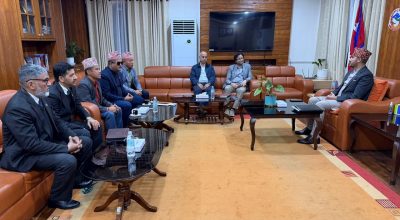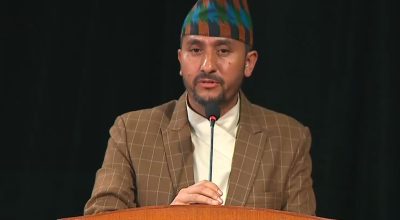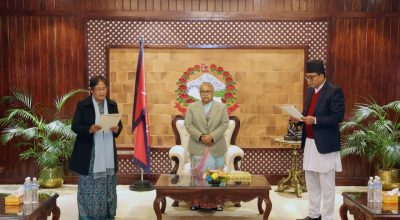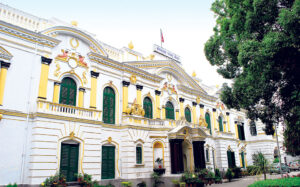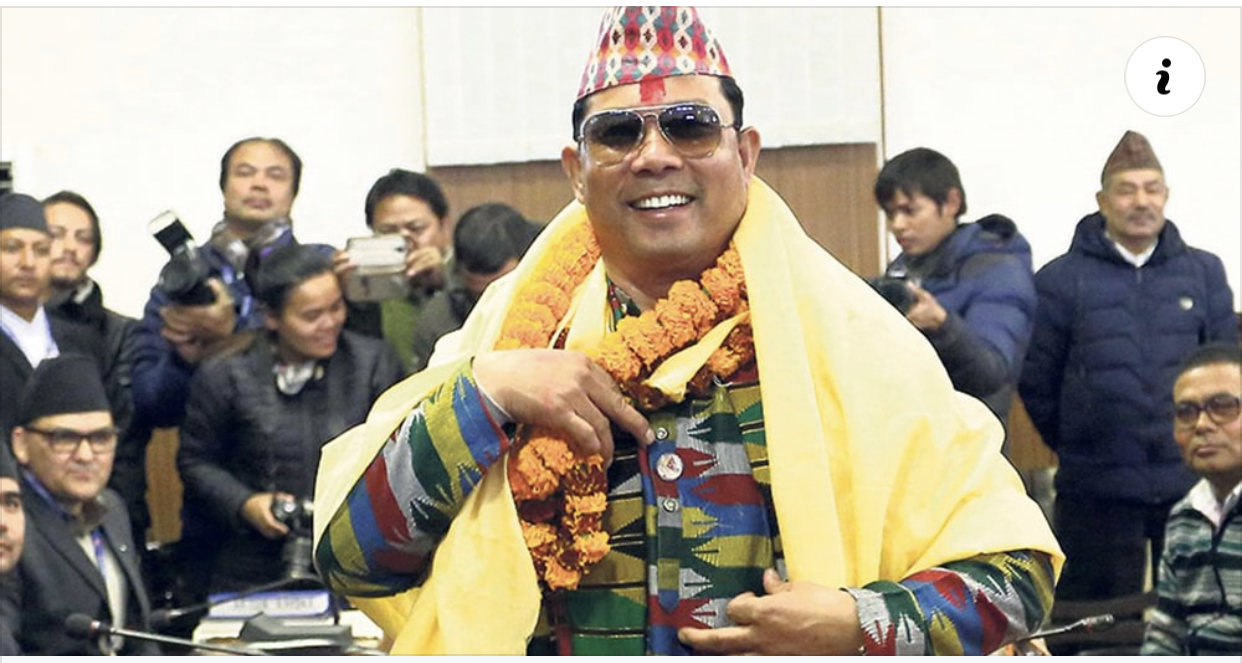
Kathmandu, May 26: The government has started preparations to waive the remaining prison terms of former MP and Nagarik Unmukti Party leader Resham Chaudhary. A letter from Ministry of Home Affairs to pardon the remainder of his life sentence, who was found guilty in the violent incident that killed 7 security personnel and a minor in Tikapur, Kailali, in Bhadra 2072 BS, has reached the President’s Office.
“The President’s office has received such a letter and the process will proceed after the study,” sources of President’s Office said. “Prime Minister Pushpa Kamal Dahal Prachanda and his team also visited President’s Office to discuss the matter with the President.”
Article 276 of the Constitution provides that the President may pardon, postpone, change or reduce the sentence imposed by any court, judicial or quasi-judicial body or administrative officer or body in accordance with the law.
According to the Civil Code of Criminal Procedure Act, 2074 BS, the Ministry of Home Affairs has initiated the process of amnesty and sent the file to the President’s Office. Section 159 of the Act provides that a person who has been sentenced according to the court’s decision can apply to the President through the Ministry of Home Affairs for pardon, postponement, change or reduction of the sentence.
Probably, the file will be returned to the Ministry of Home Affairs on Friday and the process will proceed. If the file goes ahead, the Home Ministry will submit a proposal for remission of sentence to the Council of Ministers. Before making a decision, the government will have to submit an opinion to the President’s office explaining the basis and reason.
There is a legal provision that a copy of the judgment of the court that sentenced him should be submitted along with the application in order to have the sentence imposed by the court fully or partially waived. Resham Chaudhary, who was previously sentenced to life imprisonment by District Court Kailali and High Court Dipayal, was upheld by the Supreme Court as well. The full text of the decision has not been prepared yet. The summary judgment has been made public.
According to the legal system, criminals convicted by the court can be released from prison in two ways. It is a process of granting prison terms to prisoners who have served a certain period of time on the basis of good behavior. For that, the jailer sends a proposal to the Ministry of Home Affairs through the prison administration. After the decision of the House of Council of Ministers and the decision of the President, the decision on release of imprisonment is made.
The next process is forgiveness. According to which, all the punishment of the prisoner is waived. For that, the prisoners get the facility of sending an application directly to the Ministry of Home Affairs. There is no need to collect files from the prison administration where the prisoners are located and test the behavior from the leadership of the Chief District Officer. He does not even have to pay the prescribed period of imprisonment. If a case has been started due to political revenge and the court has convicted the case, the concept of ‘pardon and waive’ is used to manage it.
The Ministry of Home Affairs sends the file to the President’s Office and after receiving the Attorney General’s opinion on the file that has been approved, it sends a proposal to the Council of Ministers. After the decision of the Council of Ministers and the decision of the President’s Office, the rest of the prisoner’s imprisonment is waived. The government is going to pardon Chaudhary on the occasion of the Republic Day on Jestha 15, 2080 BS.
Chaudhary has been in prison since 2074 BS. According to the court’s sentence of life imprisonment, he had to serve 20 years of imprisonment. If the amnesty process is implemented, he will be spared about 15 years of imprisonment.






